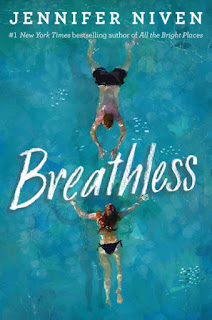When a position opens at Mermaid Cove, Verónica's friends try to convince her that she should try out for the part. Her parents are utterly opposed. Performing in public as some sort of sex object in the water is hardly something her immigrant parents approve of (or even understand). But Verónica is tired of never having a say in her life. After enduring years of submitting to painful surgeries and denying herself the things she wants, it's time to take responsibility and take charge. And with support from her secret boyfriend and from her friends, she takes the scariest step in her life.
While ostensibly the well-trod story of an intrepid first-generation teen breaking free from the bounds of her conservative parents (for heavens sake, can we have a story about permissive immigrant parents sometime?!), this novel actually avoids wallowing in that morass and finds something exceptional. So while we do have to endure the endless refrains of "good girls don't" from her parents, the sneaking out/lying, and the inevitable getting caught, we also get treated to an strong story of a young woman rejecting ablest labels. The parental disapproval is actually a side show to the bigger problems Verónica faces with societal judgments of her body and her capacity.
<Spoiler> The parental resistance is never truly overcome, and instead Verónica and her parents achieve an uneasy peace. They come to mutually accept that there will always be conflicts between what her parents and what she needs and that the family can still love one another in spite of this. So, rather than the catastrophic corner that these stories usually find themselves in (where either the parents or tghe child have to bend), Sylvester allows the characters to back away, retain their beliefs and creeds, and yet recognize that doing so doesn't mean having to give up on what is truly important: each other.</Spoiler>




















